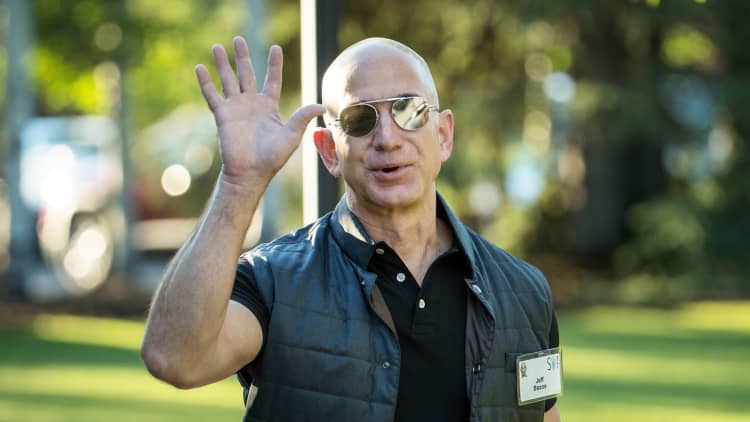The FDA's new commissioner Scott Gottlieb has been described as a "bright spot" in the current administration. He's made allies in Big Pharma and the technology sector by ushering along a variety of programs to reduce the cost and complexity of bringing new medical products to market.
Gottlieb is a former venture capitalist, a doctor and a cancer survivor. Some of his major goals for his time in office are to speed up the approvals process, drive down the cost of prescription drugs and do what he can to address the opiate crisis.
We caught up with Gottlieb earlier this month to talk digital health, cybersecurity and more. This interview has been edited for brevity.
CNBC: Let's jump in by talking about the digital medicine trend, which some view as the future of the health sector. How would you regulate it?
Scott Gottlieb: The industry has defined the term digital health in different ways. I think of it as software applications, mostly digital tools and medical apps. From a regulatory perspective, we are trying to take a risk-based approach. Some of these products are low risk and we'll think differently about them (than medical devices) and take some out of pre-market review process. We see a lot of tools out there that are enabling consumers to engage more with their wellness and we want to give them access to their health information, without getting overly concerned if it's partially predictive (of a medical condition). That's what we're trying to do with our pre-cert program.
CNBC: Speaking of the pre-cert program, which aims to provide a TSA pre-check of sorts for digital health software, some of the largest technology companies were selected for that including Apple and Samsung. How's it progressing?
SG: It's a highly iterative process. We know that a lot of these apps will get constant software updates and our traditional approach to regulating medical products isn't well suited to that. We know we need to think differently so that's how we came up with this approach. It's progressing well, and we're hoping to use it as a broader platform for how we regulate. But we're taking our time to make sure it works.
CNBC: How involved have you been in Apple's heart study, which involves researching whether the Apple Watch can detect irregularities with the heart's rhythm?
SG: I don't want to talk about any specific product, but I think that and similar concepts are examples of where a tool is engaging people in their health and prompting them to think about activity more. It could also clinically provide benefits if the companies follow certain guidelines. People who are engaged more in thinking about their health will make healthful decisions, I think. Just the act of being engaged is a public health benefit.
CNBC: Are you surprised that big tech companies like Apple and Alphabet are now making such big moves into health?
SG: Frankly, I think health is such a big opportunity that I'm surprised it took them so long to take a concerted interest in it. If you think about where people allocate resources and tend to spend time thinking about getting access to information and making decisions and purchasing consumer products to meet goals, it's a big market. I'm pleased to see the interest and see a big, untapped opportunity for more consumer facing tools.

CNBC: What's your take on Amazon's opportunity to disrupt the drug supply chain?
SG: I haven't looked at what they're doing lately but I do see a different headline every day. I think the drug supply chain is ripe for disruption and there are margins that can be recaptured in ways that can also be beneficial to consumers.
CNBC: How do you see the venture capital community responding to some of the FDA's recent moves to clarify how digital health will be regulated? And are you seeing a lot of interest in biopharma investment?
SG: I see a lot of VC activity in medical device and biopharma, which are two of the most heavily regulated industries. I think venture capitalists have gotten comfortable with regulators as a feature of health care products. As regulators, to the extent that we can, we try to provide transparent, clear guidance that helps reduce uncertainty and risk.
CNBC: Finally, how are you thinking about cybersecurity these days, especially given all the recent breaches of medical records and devices?
SG: We recently put out a guidance on this topic. And a large number of medical device reviews now have a cybersecurity assessment. So this is something we're really closely looking at. We want more transparency and information-sharing from industry about vulnerabilities across the board.


